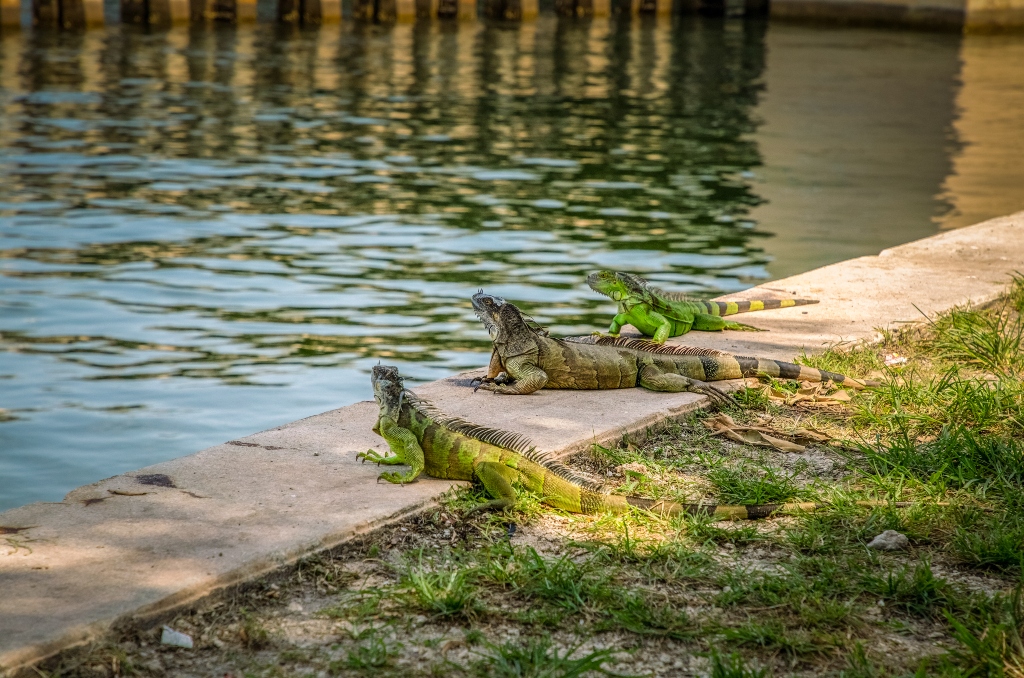Green iguana sitting by lake — Courtesy: Shutterstock — Image by: Lacey Lin Photography
Officials in a South Florida city said an iguana was at fault for causing a “large scale” power outage this past week.
Beach Electric Utility crews responded to the pesky outage on Wednesday afternoon in Lake Worth, Florida.
“[Lake Worth Beach] Electric Utility is currently responding to a large-scale outage caused by an iguana at our 6th Ave Substation,” the city tweeted just before noon on Wednesday. “This outage is affecting customers in the South East area of our service territory. Our teams are working hard to repair the damage and restore the system.”
The outage affected several customers in the South East area of the company’s service territory.
Although it didn’t immediately state how many customers were impacted, the city described the outage as “massive scale.”
City officials could not specify how the iguana caused the power outage, but the lizards are known to cause havoc among communities.
The electricity was restored in 35 minutes, according to Jason Bailey, Lake Worth Beach’s assistant director of system operations, who spoke to WPTV.
The city has not released any further updates since the first announcement, but a map that tracks local outages throughout the city shows that all have been restored.
One woman commented on Lake Worth’s original Facebook post say that a neighborhood iguana had “went up under the transformer or something but he blew it and he fried.”
Green iguanas are not indigenous to Florida, and because of the harm they cause to native wildlife, the Florida Fish and Wildlife Conservation Commission classifies them as an invasive species. They are native to the tropics of South America, Central America, and some Caribbean islands, but have become so prevalent in Florida that they have caused injury to many.
They are known for munching on vegetation, bird eggs, and dead animals, causing harm to commercial and residential areas. They can grow to be more than five feet long and weigh up to 17 pounds. Their burrowing, which can degrade sidewalks and cause them to collapse, can also harm infrastructure, according to the commission.
But perhaps their most infamous characteristic is falling out of trees.
The enormous iguanas experience cold-stunned behavior when temperatures fall below 50 degrees Fahrenheit, appearing to drop dead while they are still very much alive.
A few users of social media made light of the news by putting out several tweets.
Stories that matter are our priority. At Florida Insider, we make sure that the information we provide our readers is accurate, easy-to-read, and informative. Whether you are interested in business, education, government, history, sports, real estate, nature or travel: we have something for everyone. Follow along for the best stories in the Sunshine State.
Mike has more than 30 years of experience in marketing and public relations. He once owned his own agency and has worked with some of the largest brands in the world.

